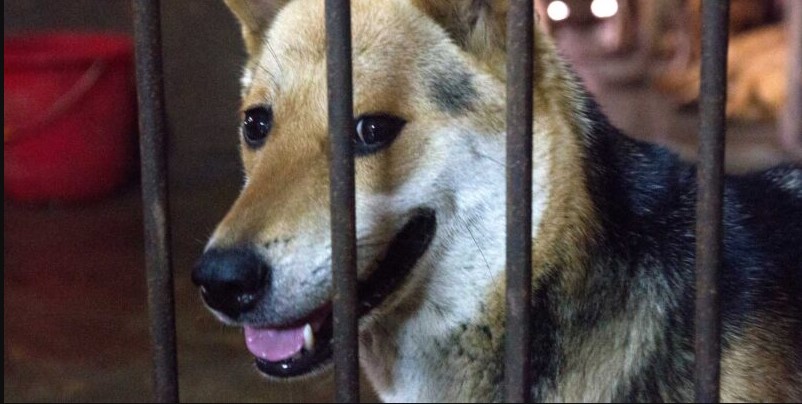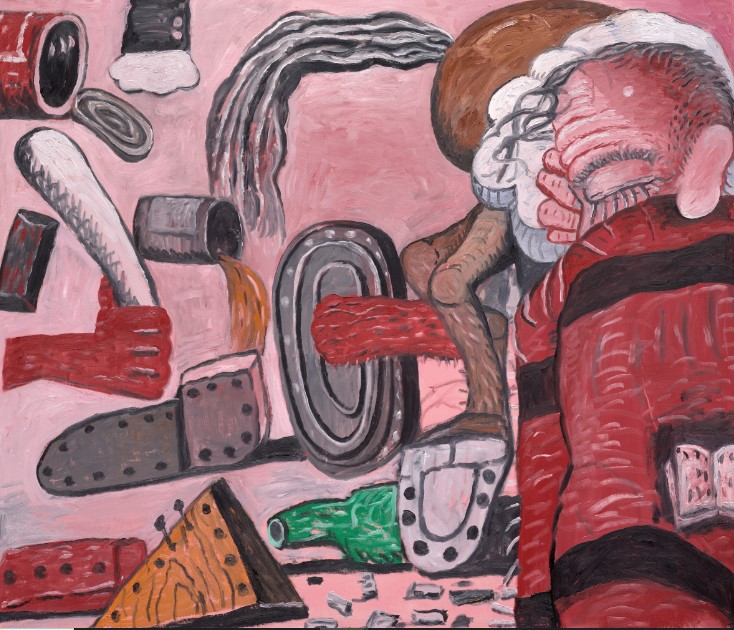Shanghai Cooperation Organisation (SCO)
June 13, 2025

Vita’s rescue was nothing short of a miracle. As our team made their way through an illegal slaughterhouse in the city of Zhanjiang, they stumbled upon a dog destined to be killed. She wasn’t alone awaiting slaughter, but she quickly caught the attention of our investigators. As the other dogs sat terrified in the corners of the slaughterhouse, this dog approached the visitors, seemingly pleading for her life.
The investigators wasted no time. It was a risky operation, as the slaughterhouse workers could not know of our undercover operations or it would pose a threat to the team’s safety. But one look into the dog’s eyes and it was clear to the investigators that they couldn’t leave her behind.
"When the slaughterman was killing the other dogs, her eyes begged me to get her out of there. We gained the trust of the workers…and managed to smuggle [her] out with us."
The investigators safely rescued the dog, though it broke their hearts to leave the others behind. They named her Vita, which means “life” in Italian—a fitting name for a dog who would go on to inspire so many with her resilience and spirit.
As soon as she arrived in Spain, it became clear why she sought out help from our investigators. She was carrying nine puppies, which she would give birth to a few days later. Vita and all nine of her puppies would go on to be adopted into loving homes. Though born into a world of suffering and cruelty, Vita and her puppies were given a chance at a better life thanks to the quick and brave actions of the investigators.
Vita’s story would go on to be told my mainstream media outlets around the world, ensuring the suffering of the dogs that had to be left behind was not in vain. Animal Equality investigated the dog and cat meat trade for eight years, going on to tell the stories of the nearly 10 million dogs and 4 million cats killed by the Chinese dog and cat meat and fur trade every year.
The cat and dog meat trade is a global problem that affects China and other countries like South Korea and parts of Asia. It is not only a cultural practice, but also “celebrated” in festivals like the Yulin Dog Meat Festival.
The Yulin Dog Meat Festival draws criticism from animal rights organizations and the general public from around the world. Since the festival originated in 2009, Yulin, which is an ancient city in China, celebrates the Summer Solstice from June 21st – June 29th. During the festival, thousands of dogs are slaughtered with as many as 10,000 dogs killed each year.
Animals are obtained illegally, snatched from their homes or the streets, and transported thousands of miles to their cruel fate. During transportation, they are deprived of food and water, crammed into cramped cages, and forced to endure unimaginable suffering. Some live out their days sick or injured before being killed, oftentimes while conscious.

June 13, 2025

June 13, 2025

June 13, 2025

June 13, 2025

June 13, 2025

June 13, 2025

June 13, 2025

June 13, 2025

June 13, 2025

June 13, 2025